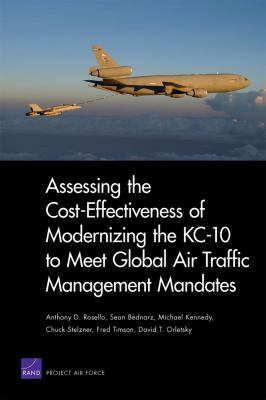
Book
|
Assessing the cost-effectiveness of modernizing the KC-10 to meet global air traffic management mandates
Copies
1 Total copies, 0 Copies are in,
1 Copies are out.
Title
Assessing the cost-effectiveness of modernizing the KC-10 to meet global air traffic management mandates
Call No
UGH 2164 .T36 A77 2009
Digital Link
Subjects
Language
English
Published
Santa Monica, CA : RAND, 2009.
Publication Desc
xx, 60 p. : ill. (some col.), col. maps ;
ISBN
9780833047656 (pbk. : alk. paper)
LCCN
2009039304
Series
Dimensions
23 cm.







